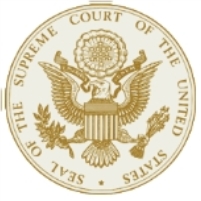Supreme Court Corporate Majority Blocks Arizona Public Campaign Finance Law
Thursday, June 30, 2011

Continuing its assault on campaign finance laws, the U.S. Supreme Court this week struck down an Arizona statute that provided taxpayer money for candidates dramatically outspent by well-funded opponents.
In a 5-4 decision, the court’s pro-corporate wing tossed out the 1998 Citizens Clean Elections Act, arguing that the law stifled free speech in political campaigns. Chief Justice John Roberts wrote the majority opinion and was joined by Justices Samuel Alito, Clarence Thomas, Anthony Kennedy and Antonin Scalia. Roberts said the law imposed “a substantial burden” on the free speech rights of candidates and independent groups because it penalized them for spending more money than a candidate who opted into the public program.
The court’s decision builds on its landmark 2009 Citizens United ruling that the government could not limit spending by corporations and unions in races.
The New York Times’ editorial page blasted the ruling, calling it “a serious setback for American democracy,” adding the “decision shows again the conservative majority’s contempt for campaign finance laws that aim to provide some balance to the unlimited amounts of money flooding the political system.”
Arizona’s campaign finance law, long considered a model for using public funds in elections, provided a certain amount of money to candidates who chose to participate in a public financing system. If the candidate’s rival opted out, the state would match the spending of the privately-financed opponent, up to triple the initial amount. Once that limit was reached, the publicly-financed candidate received no other public funds and was barred from using private contributions.
Justice Elena Kagan, writing for the minority, castigated the decision for the “broad swaths of our First Amendment doctrine” it ignored. “Less corruption, more speech. Robust campaigns leading to the election of representatives not beholden to the few, but accountable to the many. The people of Arizona might have expected a decent respect for those objectives.”
-Noel Brinkerhoff, Ken Broder
The First Amendment, Upside Down (editorial, New York Times)
Supreme Court Strikes Down Arizona Matching Funds Campaign Law (by Jordan Fabian, The Hill)
Supreme Court Removes Another Barrier to Corporate Ownership of Elections (by John Nichols, The Nation)
Arizona Free Enterprise Club’s Freedom Club PAC v. Bennett, Secretary of State of Arizona (U.S. Supreme Court) (pdf)
Corporate Block on Supreme Court Limits Class Action Suits (by Noel Brinkerhoff and David Wallechinsky, AllGov)
- Top Stories
- Unusual News
- Where is the Money Going?
- Controversies
- U.S. and the World
- Appointments and Resignations
- Latest News
- Trump Orders ICE and Border Patrol to Kill More Protestors
- Trump Renames National Football League National Trump League
- Trump to Stop Deportations If…
- Trump Denounces World Series
- What If China Invaded the United States?






Comments